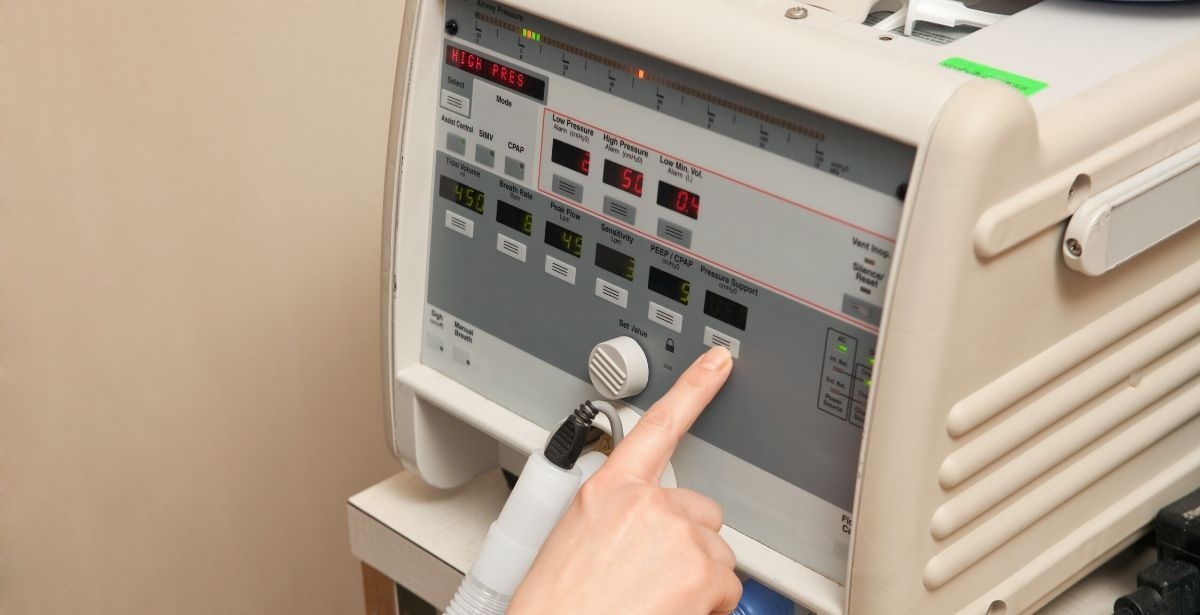
Does the U.S. Have Enough Respiratory Therapists for COVID-10?
In case you haven’t heard, there is a critical shortage of ventilators in the U.S. Those are the machines that breathe for patients whose lungs are compromised due to an injury, illness, or a virus like the novel coronavirus. But what you might not realize is that those machines are pretty sophisticated. You can’t just plug people into them and walk away. They require trained medical professionals like Respiratory Therapists to operate them. So even if we had enough ventilators, we still need enough qualified operators to run them.
What Do Respiratory Therapists Do?
If you’ve ever seen someone on a ventilator, it probably looks scary. After all, that machine is breathing for the patient. Without it, they could die. But then you also see these calm, trained professionals come into a room, spend a few minutes checking on the patient and looking at settings on the machine. They do it so quickly that sometimes it doesn’t seem like a such a big deal. But it is! First of all, the Respiratory Therapist had to intubate the patient. That’s when they skillfully insert a tube into the patient’s mouth, down their throat, through the trachea and to the opening of their lungs—all while being extra careful not to nick the vocal cords or walls of the trachea, or accidentally put the tube down the esophagus.
Once the patient is intubated, the tube that’s attached to the ventilator can inflate and get to work, pumping the lungs. But the Respiratory Therapist has to set the machine properly. He or she has to calculate the right setting based on the patient’s size, health, and medical condition. And they have to continually monitor the patient and the machine. With serious illnesses, like a deadly virus, a patient’s condition can change quickly. The Respiratory Therapist might need to make quick adjustments or call the physician if a patient’s condition rapidly deteriorate.
Why Are Respiratory Therapists in Such Demand During a Crisis?
A few years ago, there was a study done to see how ventilators would be used in the event of a large-scale public health emergency. The authors of the study looked into all kinds of what-if scenarios. They considered that there probably could be a shortage of facilities, beds, and those ever-important ventilators. But they noted that even if physicians and nurses pitched in, the “ventilation capacity would still be limited by the number of trained respiratory therapists at the crisis capacity level.” And what good are ventilators without the people who know how to use them?
One of the reasons that there’s likely to be a shortage in a crisis is that there is already a big demand for Respiratory Therapists. Job growth is expected to be much faster than average through 2028. That’s partly because so many people with chronic lung diseases need the help of Respiratory Therapists. But what happens when the people treating the sick people get sick? Then there’s trouble. That’s when you have to pull doctors and nurses who know how to use the machines away from the important work they’re doing. Chief executive of Emergency Care Research Institute Marcus Schabacker recently said “You’re going to run out of personnel before you run out of ventilators.”
Calling All Respiratory Therapists
So then what happens? In some cases, new Respiratory Therapists are finding immediate work. The vital services they provide have never been in such demand. Some states are even speeding things up, giving special student licenses to allow students that were a few months from graduating to go into practice even though they haven't graduated yet. And some hospitals are bringing people out of retirement, asking those with the right skills to pitch in and help during the crisis.
Have you always known you’d be good in a crisis? Do you want to play a critical role in people’s lives in bad times and better times? Consider training to become a Respiratory Therapist at YTI Career Institute in Altoona, PA. Fill out the form and get started on your new career journey today.


